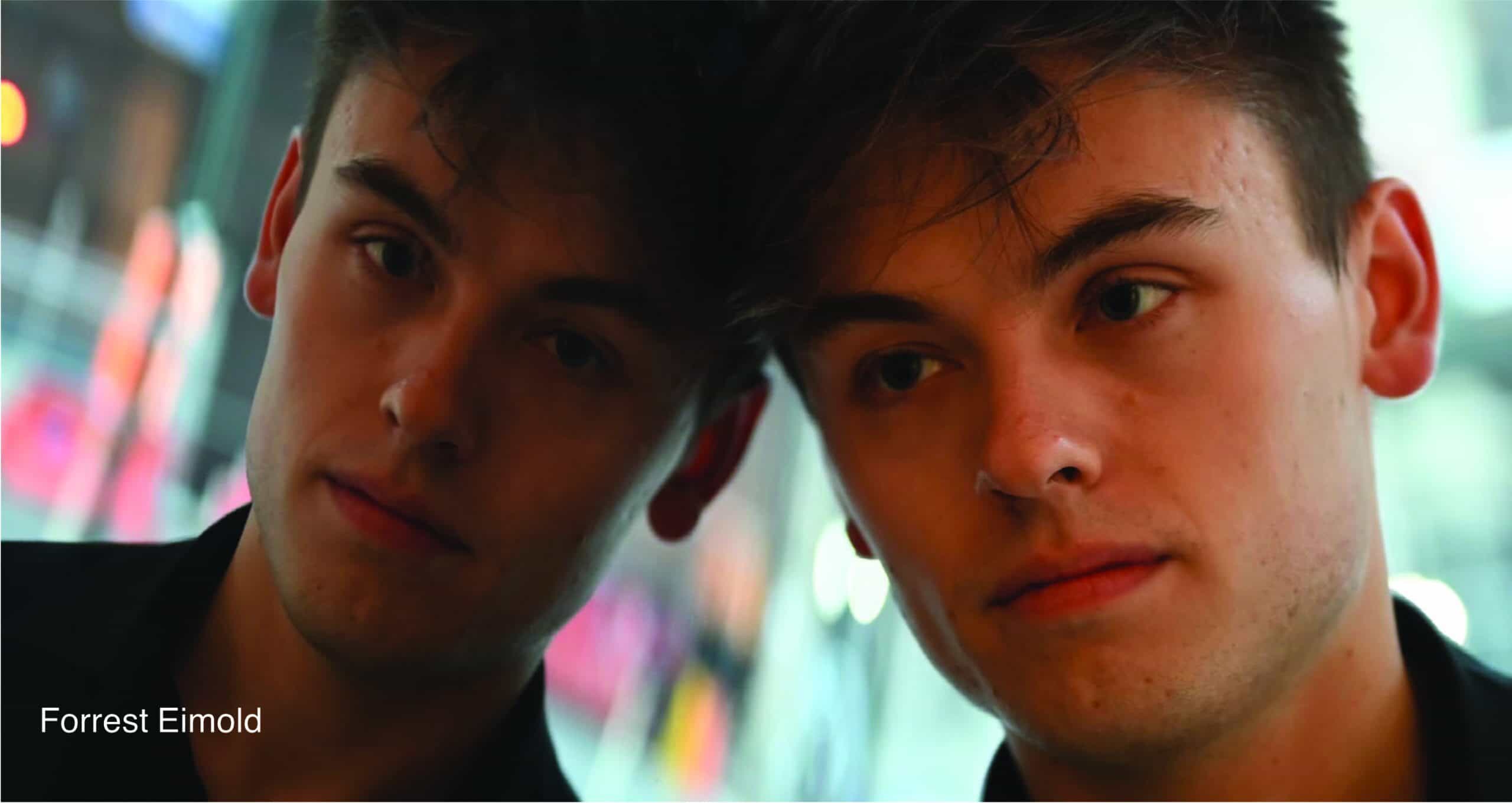Forrest Eimold

American composer-keyboardist Forrest Eimold is a musical documentarian:
architectural compositor and interpretive operator at once, he finds himself equally at home among an ever-wider range of audiovisual objects.
As performer, he first gained notice at age 13 for having performed Olivier Messiaen’s two-hour organ cycle, the Livre du Saint Sacrement. By age 16, he had fulfilled his plan to perform all five hours’ worth of Messiaen’s post-war organ music, and quickly gained a reputation for interpreting difficult, often concert length twentieth-century works – like Morton Feldman’s For John Cage (for violin and piano) and pieces by Iannis Xenakis
and Karlheinz Stockhausen. The Washington Post has since described him as having “ably responded to the many virtuosic demands” of today’s compositional vanguard, including collaborations with such luminaries as Gerald Barry, Leonid Hrabovsky, Judith Weir, and-in particular Michael Finnissy. A passionate advocate for historically-informed performance practice, too, he regularly plays continuo for the Grammy-nominated Trinity
Baroque Orchestra, contributing to what The New York Times has hailed as “the best Messiah in New York.” He has studied with Stephen Drury, Arthur Haas, Rodney Lister, Julian Martin, John Robinson, and Marc Ryser, and has participated in festivals under the tutelage of Thomas Adès (at the International Musicians Seminar, Prussia Cove), Joanna MacGregor (at Dartington Summer School), and Ursula Oppens (at the Bowdoin
International Music Festival). From 2018 to 2022, he served as Music & Organ Scholar at Trinity Church Wall Street, having been previously awarded the Organ Scholarship at St. Paul’s Parish, Harvard Square in 2014.
As composer, his work illuminates sites of intersubjective difference – foregrounding shared notational imperatives in order to render performers’ individual, subjunctive deviations legible. His pieces uphold a firm belief (informed not least by family experiences of hearing loss) in the visual imprint of musical composition, and diffract preexisting scores from various classical canons. His own scores have been sounded by the likes of the Choir of Trinity Wall Street, Ensemble Dal Niente, Fonema Consort, Mivos Quartet, National Sawdust Ensemble, and Wet Ink Ensemble. He has been
honored, among other accolades, with a Blueprint Fellowship from the Juilliard School and National Sawdust; the Ezra Laderman Prize and Virgil Thomson Scholarship from11 Yale University; the Louis Sudler Prize in the Arts from Columbia University; and two National YoungArts Awards. Composers with whom he has studied include Larry Thomas Bell, Martin Bresnick, Georg Friedrich Haas, Aaron Jay Kernis, David Lang, and
Christopher Theofanidis.
As repetiteur and sight-reader-including from full orchestral scores-he has helped bring to life world premieres by Du Yun, Nico Muhly, Arva Part, Huang Ruo, and Tyshawn Sorey, among many others. With peers like violinist Charlie Lovell-Jones, he has recently begun reviving the long-lost medium of the ‘sight-reading recital,’ whose expressive value derives from the performers’ own immediate reactions to the written page – both by programming unrehearsed work and by soliciting requests from audience members.
As of 2025, he lives in New Haven, Connecticut, and works with Katherine Balch towards his doctoral degree in composition at the Yale School of Music.



![🎧 Listen now to the @purcellsingers' first single from their upcoming album, #ASpotlessRose! ➡️ listn.fm/aspotlessrose [in bio]](https://scontent-dfw5-2.cdninstagram.com/v/t51.71878-15/642752592_1424641949105789_8815810652567824072_n.jpg?stp=dst-jpg_e35_tt6&_nc_cat=106&ccb=7-5&_nc_sid=18de74&efg=eyJlZmdfdGFnIjoiQ0xJUFMuYmVzdF9pbWFnZV91cmxnZW4uQzMifQ%3D%3D&_nc_ohc=T5Ccuc9zEjQQ7kNvwE9-ytr&_nc_oc=Adm-J5UusQXwrq4LDLz3p2RvhQujHbgJ1rn-oxhtCiFWd_mMFx6UyuUf3cz8sBoasMc&_nc_zt=23&_nc_ht=scontent-dfw5-2.cdninstagram.com&edm=ANo9K5cEAAAA&_nc_gid=vbwIDCL-QDWSZ1U8cJPvhQ&_nc_tpa=Q5bMBQE1LjWpCxtDvExeJa68QUkk8qPR4f75kdDNbR3boMpQA40gilWk72YWuwTAZSpS5ezoWclV7-sldg&oh=00_Aft1DjNABnj3xcPZbd-Y8s1eP9pCOZeoCoU9o6XPHUpmHg&oe=69A8E5C1)








